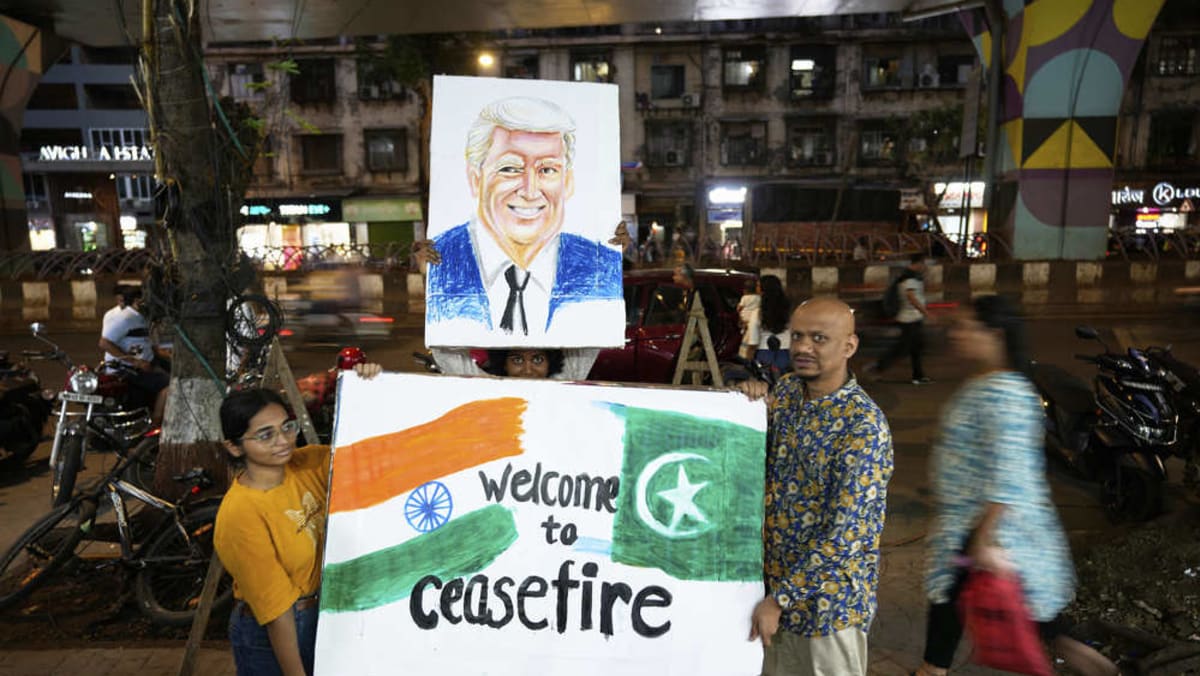Fragile Ceasefire Holds Between India and Pakistan Amid Tensions

AMRITSAR/MUZAFFARABAD: A tenuous ceasefire was observed on Sunday, May 11, between the nuclear-armed nations of India and Pakistan, following an intense period of fighting that lasted for over four days. This round of hostilities marked one of the most severe escalations in violence the two countries have seen in nearly three decades. During this period, both sides engaged in heavy artillery exchanges, launching missiles and drones at each other's military installations, resulting in the tragic loss of dozens of lives.
The fragile truce was reportedly reached after significant diplomatic intervention and pressure from the United States, with President Donald Trump expressing his intention to facilitate a peaceful resolution regarding the contentious Kashmir region. However, just hours after the ceasefire was agreed upon, reports of artillery fire surfaced again in Indian-administered Kashmir, where much of the recent fighting has taken place.
Residents in border areas experienced a distressing night as blasts from air-defense systems echoed through cities, shrouded in blackout conditions that mirrored the previous two nights. Eyewitness accounts from authorities and residents indicated that the tensions remained palpable despite the ceasefire.
Late on Saturday, India officially accused Pakistan of breaching the ceasefire agreement, asserting that its military would respond firmly to any further violations. In a stark contrast, Pakistan maintained its commitment to the ceasefire and attributed the blame for any incidents to India.
By early morning, reports indicated that the hostilities had subsided on both sides of the border. Following a blackout the night before, electricity was restored in most areas along the border, providing a much-needed respite for local residents.
As the situation evolved, President Trump commended the leaders of both nations for their willingness to halt the escalating aggression. In a post shared on Truth Social, he elaborated: "While not even discussed, I am going to increase trade, substantially, with both of these great nations. Additionally, I will work with you both to see if ... a solution can be arrived at concerning Kashmir." His comments underscored the ongoing hopes for diplomatic engagement to alleviate the tensions in the region.
In the bustling border city of Amritsar, known for its iconic Golden Temple which holds deep significance for Sikhs, a siren sounded in the morning, signaling a return to normalcy. The sound brought a sense of relief to the city's residents, who were seen returning to their daily routines.
The outbreak of violence had its roots in an attack two weeks prior, where 26 individuals were killed in an assault targeting Hindu citizens in Pahalgam, Indian Kashmir. Local shopkeeper Satvir Singh Alhuwalia, aged 48, shared his sentiments with Reuters, saying, "Ever since the day terrorists attacked people in Pahalgam, we have been shutting our shops very early, and there was an uncertainty. I am happy that at least there will be no bloodshed on both sides." His words reflect the anxiety and fear that has permeated the region during these recent conflicts.
While reports surfaced of some sporadic firing in Bhimber, located in Pakistani-administered Kashmir overnight, officials stated that there were no casualties from these incidents. This relative calm, however, contrasts sharply with the stark history between India and Pakistan. Since gaining independence from British colonial rule in 1947, the two nations have fought three wars, two of which were directly related to the disputed region of Kashmir, a territory both countries claim in full but administer only in parts.
In the ongoing conflict over Kashmir, India accuses Pakistan of fostering an insurgency that has plagued the region since 1989, resulting in the deaths of tens of thousands. Conversely, Pakistan asserts that it provides only moral, political, and diplomatic support to Kashmiri separatists.
As of now, the combined death toll from the recent skirmishes has approached a staggering 70 fatalities, a grim statistic that underscores the urgent need for sustained diplomatic efforts. Guruman Singh, a security guard based in Amritsar, expressed relief over the ceasefire, stating, "More than me, my family is happy because my children and wife have been calling me every hour to check on me. Thank God the ceasefire happened." His statement encapsulates the emotional toll that the conflict has had on families caught in the crossfire.



























